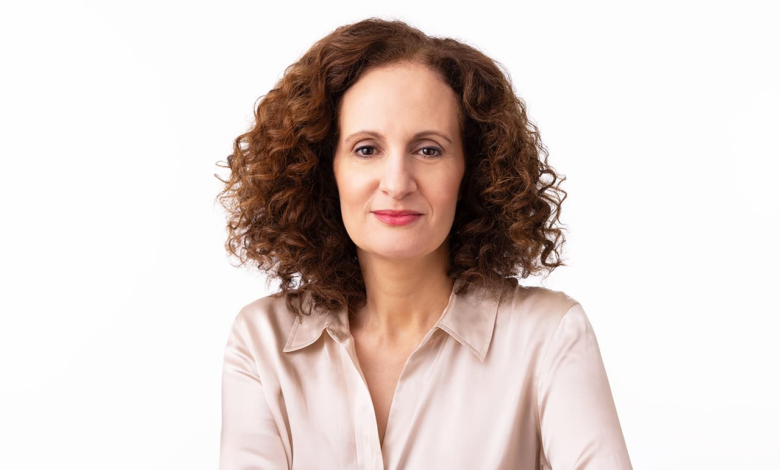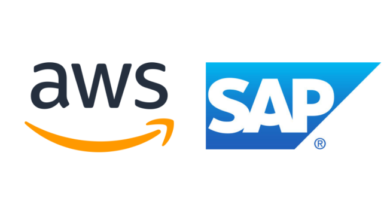Alphabet CFO Anat Ashkenazi jumps from GLP-1 boom to generative AI

Alphabet incoming CFO Anat Ashkenazi, who spent 23 years at Eli Lilly
Eli Lilly
“Hundreds of thousands of people fill scripts for Mounjaro and Zepbound, yet we understand the frustration from those facing prescription delays or uncertainties getting their medicine,” Ashkenazi said on Eli Lilly’s first-quarter earnings call in April.
The two drugs are part of a class of treatments called GLP-1s, which have taken off in the past couple years because of their effectiveness in helping people lose weight. The medications, which also treat diabetes, work by mimicking a hormone produced in the gut to suppress a person’s appetite. About one in 8 adults in the U.S. has used a GLP-1, according to a survey released last month from health policy research organization KFF.
Shares of Eli Lilly have soared 90% in the past year and are trading at a record. The company in April reported better-than-expected results and hiked its full-year guidance.
“During her last three years as Lilly’s CFO, we have experienced tremendous growth and laid the groundwork to help us reach even more patients with our medicines,” Eli Lilly CEO David Ricks said in a press release on Wednesday.
Ashkenazi, who spent the past 23 years at Eli Lilly, is heading from the drugmaker’s headquarters in Indiana to the San Francisco Bay Area at the end of July at an equally pivotal moment for Google. The finance unit has been grappling with a restructuring that’s impacted the whole company, as Google prioritizes investments in AI to keep up with a rapidly evolving market.
Porat is moving into a new role as president and chief investment officer at Alphabet, nine years after joining the company from Morgan Stanley. She and Ashkenazi will both be reporting to CEO Sundar Pichai.
Alphabet didn’t immediately respond to CNBC’s request for an interview with Ashkenazi.
Ruth Porat, Alphabet’s chief financial officer, appears on a panel session at the World Economic Forum in Davos, Switzerland, on May 24, 2022.
Hollie Adams | Bloomberg | Getty Images
Ashkenazi, 51, started her career in Israel in financial services. When she joined Eli Lilly in 2001, she came in through the company’s new venture capital division, which was co-founded by her then-spouse Ron Laufer.
On her way to becoming CFO in 2021, Ashkenazi was finance chief for global divisions, including manufacturing, and research and development, and served as chief strategy officer. She took the helm of the finance department after then-CFO John Smiley resigned following allegations of an inappropriate relationship with an employee and forfeited millions of dollars in bonus and equity awards.
Upon her promotion, Ashkenazi noticed a data point that was frustrating: she was the only female CFO in the biopharma sector. Her path had been relatively easy, she told CNBC in a 2022 interview, moving to the U.S. from Israel over two decades earlier and coming from a very different culture where gender inequality was less of an issue. She said it wasn’t something she thought about.
“I could care less,” Ashkenazi said. “But not everyone has that mindset, especially in the Midwest.”
Ashkenazi said on the CFO Thought Leader podcast last year that she spent five years in various parts of the organization, looking at the business from different perspectives.
“That experience built my skillset in a more comprehensive way,” she said.
Ashkenazi holds a master of business administration degree from Tel Aviv University and a bachelor’s degree in economics and business administration from the Hebrew University, according to public filings.
Founded in 1876, Eli Lilly has long been one of the major U.S. pharmaceutical companies. It’s known for introducing anti-depressants Prozac in the 1980s and Cymbalta about 20 years later.
But the last couple years have marked a period of historic growth for Eli Lilly due to the exploding popularity of GLP-1s. Sales from diabetes drug Mounjaro, which exceeded $5 billion in its first full year on the market, and the fast launch of the newly approved weight loss injection Zepbound, helped lift Eli Lilly’s revenue by 20% last year to $34 billion, marking the fastest growth since 1990, according to FactSet.
The Mounjaro Injection Pen.
Courtesy: Mounjaro
That success, along with the potential of highly anticipated drugs such as the Alzheimer’s treatment donanemab, boosted Eli Lilly’s market cap to nearly $800 billion, making it the biggest pharmaceutical company by market cap.
With demand for its weight loss and diabetes treatments outstripping supply, many patients are struggling to find the medications. Ashkenazi said on an earnings call in February that the company had doubled production capacity for its incretin drugs by the end of 2023, helped by one of its new facilities in North Carolina.
Eli Lilly also said it would spend $2.5 billion to open a manufacturing site for injectable products in Germany, and invest an additional $1.6 billion to build two new production facilities in its home state of Indiana.
“Our manufacturing organization continues to execute well on the most ambitious expansion agenda in our company’s long history,” Ashkenazi said on the call.
It’s not the first time Ashkenazi has had to oversee rapid production.
In 2020, the Trump administration announced an agreement to purchase Eli Lilly’s Covid-19 antibody treatment as part of the health department’s “Operation Warp Speed.” The next year, the U.S. Food and Drug Administrated stopped one of Lilly’s Covid-19 antibody treatments, bamlanivimab, determining the therapy on its own may not work well against variants.
Ashkenazi said on the CFO podcast that Eli Lilly jumped into the Covid testing market to try and ramp up production at a time when it was sorely needed.
“We’re not a medical device company, we’re not a hospital,” Askhenazi said. “But we decided to step in at our cost and set up a testing site at the bottom of our building.”
Ashkenazi also helped on the digitization of some research during the pandemic, and expanded predictive analytics for manufacturing and sales.
“We didn’t stop there,” she said. “We decided to develop therapeutics, antibody treatment for Covid, which were outside of our business.”
Ashkenazi has had to deal with plenty of public pressure along the way. Last year, as whistleblowers and government groups criticized the high prices of new obesity medications that served as life-saving drugs for some, Eli Lilly announced price cuts of 70% for its most commonly prescribed insulins as well as the expansion of a program that caps patient out-of-pocket costs for insulin at $35 per month.
However, in April, a $13.5 million settlement between Eli Lilly and buyers of insulin drugs was scrapped following a judge’s refusal to certify a class in the case.
Last year, Eli Lilly settled a whistleblower lawsuit from a former employee, who alleged manufacturing problems and faulty practices involving diabetes drugs and insulin pricing. In 2021, the U.S. Department of Justice in 2021 launched a criminal probe into an Eli Lilly plant in New Jersey, due to alleged manufacturing practices and data falsification. The FDA detected more deficiencies at the plant last year, Reuters reported in January.
At Alphabet, Ashkenazi inherits an equally large but very different set of challenges.
The company’s core advertising business is on the mend after a difficult 2023, when businesses were slashing ad spending to help manage through soaring inflation and macroeconomic concerns.
Revenue increased 15% in the first quarter, the fastest growth since early 2022. The company announced its first-ever dividend and a $70 billion buyback program. The stock price is up 26% this year and is trading near its all-time high.
But the company has been on the defensive for much of the past 18 months, following the launch in late 2022 of OpenAI’s ChatGPT, which caught Google off guard and sparked investor concerns that consumers may soon have new ways to find information online. Google responded with a series of generative AI product launches that have been criticized as rushed and, in some cases, the company was forced to backtrack due to mishaps.
Meanwhile, despite being one of the largest companies in the world, Alphabet remains a founder-controlled business, with Larry Page and Sergey Brin maintaining “over 51% of our company’s total voting power while owning less than 12% of stock,” according to the latest proxy filing.
Ashkenazi is also joining at a time of cultural change at a company that, for its first couple decades, was known for high pay, extravagant perks and a vibrant culture. Employees have recently expressed frustration over declining morale tied to the company’s ongoing cost cuts, despite record profits, and return to office mandates following the pandemic.
— CNBC’s Eric Rosenbaum and NBC researcher Toby Lyles contributed to this report.



